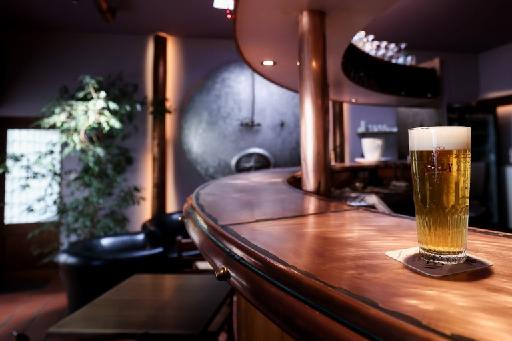Patrons of cafés and pubs in Flanders and Wallonia will be able to sip a beer at the bar come 1 September, but their counterparts in Brussels will still need to sit at their tables and wait to be served since new relaxations decided on Friday by the Consultative Committee do not apply to the capital region.
Why? The region’s poor vaccination rates.
Brussels lags way behind the rest of the country in terms of vaccination. Some 91% of Flanders residents over the age of 18 have had at least one dose and 88% are fully vaccinated, according to the figures from the national public health institute, Sciensano, for the period ending 19 August 2021.
Wallonia’s vaccination rates, excluding Ost-Belgien (the German-speaking community) are 80% (1st dose) and 77% (fully vaccinated). Ost-Belgien’s rates are 74% and 73% respectively.
On the other hand, only 64% of Brussels residents have had a first jab, while 60% are fully vaccinated.
Infections, too, have evolved differently in the capital.
The incidence of the coronavirus in the past 14 days has been highest in Brussels Province, where it is 481 cases per 100,000 inhabitants, as against 265 per 100,000 in the province with the next highest rate, Walloon Brabant.
Friday’s decision by the Consultative Committee to allow free access to the bar in Flanders and Wallonia from 1 September has been welcomed by Federation of Cafés of Belgium director Erik Beunckens.
“One should not lose sight of the fact that the counter is the soul of any café,” he said. “Cafés are often not very big, and the bar occupies an important place in that reduced space, so they lost capacity with the ban on serving at the bar.”
The Government has also temporarily reduced VAT for restaurant and catering services to 6%. This rate, valid for 8 May to 30 September, also applies to the supply of all beverages to be consumed on site.
Mr. Beunckens said measures meant to provide support for the sector needed to be maintained due to the lack of capacity in past months and the inclement weather this summer.
At the beginning of the crisis, there were 13,000 cafés in Belgium; in the end only 10,000 will be left,” he predicted.
The Belgian Restaurants Association is also happy that Belgium’s authorities have agreed to relax the health-related measures.
“In Flanders and Wallonia, restaurants will again be able to operate at full capacity with the end of the limit to the number of guests per table,” noted Association director Steven Rosseel.
“I hope the 6% VAT will not be revised upward too quickly, because such an increase could affect prices.”
The Brussels Times

